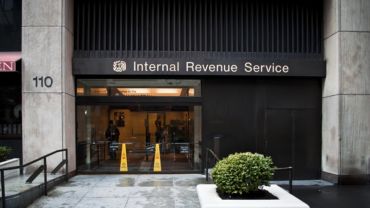You're giving away 60 hours of billable time every busy season—and missing your biggest growth opportunities in the process.
Highlights
- Tax professionals lose 60 hours of billable time answering free 'quick questions' during busy season.
- Client questions about incorporation and deductions signal deeper advisory opportunities beyond compliance work.
- Technology automation can free up 30% of daily tasks for higher-value client interactions.
It’s probably happened to you before. A client comes in to drop off all their tax prep information and stops to ask you a “quick question.” It’s a question that is easy for you to answer, but one that has nothing to do with the work you do for the client.
You probably answered it without giving it a second thought. But what just happened was that you gave away your knowledge for free. You can and should be paid for your expertise when clients ask for advice that falls outside the scope of work you have been hired to do.
That “quick question” might have been more than a request for information. It could have been a signal of difficulties a client faces beyond their tax return. And recognizing what they’re really asking might change how you think about your relationships with them.
Jump to ↓
| The hidden cost of answering quick questions for tax professionals |
| Common questions for a CPA that reveal advisory opportunities |
| Why tax professionals give away expertise for free |
| Shifting from reactive answers to proactive advisory services |
| How leading accounting firms are transforming their service models |
| Turn client questions into advisory opportunities this tax season |
The hidden cost of answering quick questions for tax professionals
During busy season, certain questions come up repeatedly. They seem simple on the surface. But when you step back and consider the cumulative impact, these questions shed light on something deeper.
When clients ask about incorporation, deductions, or cash flow, they express uncertainty about bigger strategic decisions. They’re indicating that they need guidance but don’t know how to ask for it. Many don’t even realize the depth of the challenge they’re facing.
Tax professionals are trained to provide answers. Clients have learned to ask for “quick” help. This dynamic has created a pattern that benefits neither party. Clients get surface-level answers to complex problems. Professionals spend time addressing questions that deserve deeper exploration.
How “quick questions” add up during busy season
If you’re answering just three “quick questions” daily during tax season, that’s 15 questions per week. At an average of 20 minutes per question (including interruption recovery time), you’re giving away 5 hours weekly. Over a 12-week busy season, that’s 60 hours of expertise and roughly 1.5 weeks of billable time.
Common questions for a CPA that reveal advisory opportunities
Every tax season, the same types of questions come up. Here’s what tax and accounting professionals commonly hear and what these questions may suggest:
Business structure questions
-
- “Should I incorporate my business?”
- “Is an S-corp or LLC better for me?”
Underlying message: Uncertainty about growth strategy and long-term planning without understanding the full implications for taxes, liability, and future flexibility.
Tax planning and strategy questions
-
- “How can I reduce my tax burden?”
- “What deductions am I missing?”
Underlying message: A reactive rather than proactive approach to tax planning. Instead of strategic tax management throughout the year, they’re looking for quick fixes during tax season.
Business growth questions
-
- “When should I hire my first employee?”
- “Can I afford to expand?”
- “How much should I pay myself?”
Underlying message: Major business decisions being made without strategic financial guidance.
Operational questions
-
- “What software should I use?”
- “How can I streamline my operations?”
Underlying message: Efficiency challenges impacting profitability and operational overwhelm.
These aren’t simple questions with simple answers. They’re entry points into conversations about business strategy, growth, and financial health.

White paper
4 keys to building advisory relationships for your tax and accounting firm
Read white paper ↗Why tax professionals give away expertise for free
Historically, tax and accounting services have been transactional. Clients purchase tax returns and professionals deliver compliance. This model has created expectations on both sides, where clients expect quick answers and professionals provide them.
But today’s business owners face more complexity than ever. Tax laws, technology, growth opportunities, and financial decisions are increasingly interconnected. There’s a gap between what clients need and what they think they can ask for.
Why clients don’t know how to ask for more
They don’t know what “more” looks like. They assume tax professionals only handle compliance. Tax clients may wonder, but don’t know how to ask for help with many of the issues they face. The relationship has been defined narrowly from the start, making it difficult to broaden the conversation.
The real fear behind free advice: Client retention
Many practitioners worry: “If I don’t answer their question immediately, they’ll go elsewhere.”
But firms that keep advisory at the center of their relationships are better positioned to ensure their clients are getting the services they need. In fact, research shows clients respect and value expertise they pay for.
Shifting from reactive answers to proactive advisory services
What if the goal isn’t to answer questions quickly but to understand what prompted them? What if “quick questions” are actually opportunities to have deeper conversations? This requires a fundamental shift in how we think about client interactions.
How a different approach might look:
-
- Listening for what’s behind the question, not just what’s being asked
- Recognizing when a question signals a strategic need
- Creating space for conversations that go beyond surface-level answers
Creating capacity for advisory work through technology
One reason this pattern persists is capacity. When you’re juggling 40+ client returns, managing staff questions, and dealing with agency delays, answering a “quick question” feels easier than scheduling a follow-up.
But technology and process improvements can create bandwidth for different types of conversations. According to data from the 2025 Future of Professionals Report, simple process improvements can have amazing results:
-
- Approximately 30% of daily tasks professionals handle can be automated, freeing up time for higher-value client interactions
- Firms implementing process improvements have reduced work-in-progress days by 18% and even doubled the number of returns completed during busy season.
How leading accounting firms are transforming their service models
A growing number of tax and accounting firms are rethinking their service models. They’re recognizing that you shouldn’t be selling your expertise for the price of a tax return. Your knowledge is valuable to clients, and your firm can tap into those valuable resources to utilize the potential growth opportunities.
The shift to advisory services involves:
-
- Moving from reactive to proactive
- From compliance-focused to strategy-centered
- From transactional to relational
Turn client questions into advisory opportunities this tax season
This tax season, you’ll hear dozens of “quick questions.” Each one is an opportunity to better understand a client’s situation.
The most successful advisory professionals recognize patterns, understand context, and see opportunities that clients themselves may not yet see.
Don’t give away your expertise this tax season. Instead, when a client asks a question that is beyond the scope of the agreement, use it as an opportunity to put advisory services at the center of your client relationships.
Ready to create capacity for deeper client relationships?
Download our white paper: Mastering the growth mindset by putting tech to work to discover how tax and accounting professionals are using technology and process improvements to create bandwidth for more meaningful client conversations to discover how tax and accounting professionals are using technology and process improvements to create bandwidth for more meaningful client conversations.







